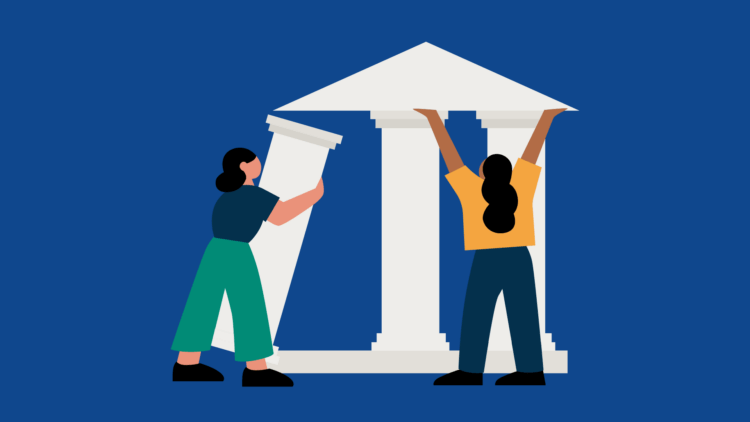You’ve dedicated a good number of years to law school and potentially a sizeable amount of debt. The bar exam is the last hurdle you need to clear before you can finally focus on building your career as a lawyer. If you’re looking at how to study for the bar exam, you’re likely considering several options, including bar prep courses, online materials, or study groups.
Before you decide to self-study for the bar exam, or to register for an expensive prep course, consider the benefits and drawbacks of each approach. Here are some guidelines to help you make the best decision.
Benefits of self-study for the bar exam
However you choose to prepare, know that there are many paths to success, including self-study. Even the best bar prep course won’t work for you if you’re a self-starter who does best when following your own methods, so don’t be afraid to do it alone. Consider that self-study will allow you to:
- Save money. The best bar prep courses can cost thousands of dollars, which may not be ideal if money is already tight after law school. Self-study resources can cost as little as a few hundred dollars, or nothing at all.
- Do it on your own time. If you have a good idea of how much time it will take for you to properly prepare for the bar exam, self-study will give you the freedom to prepare at your own pace—and to take extra time if you need it. Studying on a flexible schedule might be especially ideal for law school grads who are moving to a new state, or who have other commitments.
- Play to your strengths. There’s no best way to learn. Studying on your own allows you to do what works best for you—if you learn best through written forms, you can do more practice bar exams. If you learn visually, you can practice with flashcards or spend more time reading key materials. Not sure which is for you? Take the VARK questionnaire to determine your learning style, and then plan your studies accordingly.
- Focus on what you need to learn. Self-study means you have the freedom to focus your attention on what you need to learn. You won’t be forced to spend tons of time on concepts you feel more comfortable with.
Signs self-study may not be for you
While solo bar prep has its benefits, it isn’t for everyone. Those who say self-study is the best and only way you should prepare for the bar are likely lawyers who did it and were successful—that doesn’t necessarily mean this route is right for your situation.
What might indicate that studying for the bar exam alone is not for you?
- You enjoy learning in groups. If you’re not sure how to frame a given argument, it can be helpful to talk things out with your fellow students. This isn’t to say you can’t prepare outside of class with a study group, but this can be difficult if you’re taking exams in a jurisdiction outside of where you studied (for example, you may have studied in Arizona, but you may want to practice in Washington). In this case, you might be better off finding a prep course in your target jurisdiction.
- You need external motivators. Preparing for the bar exam alone requires a lot of self-discipline. Be honest with yourself—will you study as much as you need to without a bar prep course to keep you on track?
- You enjoy being in class. If you simply enjoy classroom instruction, having access to a knowledgeable instructor, and you’re willing to pay for the experience, taking a class may be your best option. Many law students find bar prep courses helpful.
- You don’t feel confident. Different people bring different experiences to their legal studies, and some additional instruction might be what you need. If you’re anxious about the exam or if you’ve got a serious case of imposter syndrome, completing a bar prep course may give you some added confidence. By the way, did you know that self-confidence can improve your chances of success?
You may like these posts
4 Tips on how to study for the bar exam on your own
If after reading the above, you’ve decided you want to self-study for the bar exam, here are a few tips to help you succeed:
1. Be organized
It takes a lot of time to study for the bar—Ashley Heidemann, owner and founder of bar exam prep company JD Advising, says it takes about 400 hours to study for the bar exam. On top of that, you’ll need time to figure out what to focus on and how to structure your study time.
Think about which areas of law you need to study more than others, and allot more time for those. Also, format matters: Set aside time to practice for the multiple-choice, essay, and written assignment sections of the exam. Beyond that:
- Plan for the unexpected. What happens if you get sick? Or if you need to spend additional time reviewing something? Start studying early and add some buffer time to your study schedule.
- Don’t be afraid to adjust. You’ll learn a lot about the bar prep process once you’re in the midst of it, and re-evaluating your priorities mid-way through can help save time.
2. Find quality bar prep materials
You’re studying on your own, but that doesn’t mean you don’t need help. Practice exams are, of course, a great place to start, and your law library may also have some great resources you can borrow for free.
Here are a few other resources to consider:
- Summaries of black letter law. These resources summarize laws into clear snippets that are easy to memorize and apply in your answers for written assignment sections of the exam. The Nutshell series from West Academic is great for quick summaries.
- Review guides. These guides have been designed to offer comprehensive breakdowns of what you need to know for the bar exam. If you’re not sure which guide to pick, or where to start, why not check out which guides are most popular on Amazon?
- Past bar exams. Many state examiners distribute practice questions with sample answers for both multi-state and state-specific tests. States that post older exams include Florida, New Jersey, and Texas. Reviewing them will help you study question formats and the issues they touch upon.
3. Get good at self-assessment
Make sure to study both sample questions and answers. Like any exam, passing isn’t just about knowing the right information—It’s also about knowing how to present your responses.
Learn to think like a bar examiner by analyzing how your responses compare to sample answers.
4. Avoid distraction
Even though you won’t be spending time in the classroom, you’re going to need a lot of time on your own. It’s a good idea to let others know about what you’re doing—i.e., that the weeks leading up to the bar exam aren’t the best time to go for a beer or help move some furniture.
If you struggle with distraction, think about unplugging entirely from all communications—including email, social media, and text messaging—at least during your prescribed study time.
Your next step
Passing the bar is a major step in starting your career. Figure out what works for you so you can put your best foot forward when it comes to studying. With the right methods, you can approach the bar exam with confidence and be ready to begin your career as a lawyer—you may even start your own law firm right after law school.
We published this blog post in February 2018. Last updated: .
Categorized in: Business









